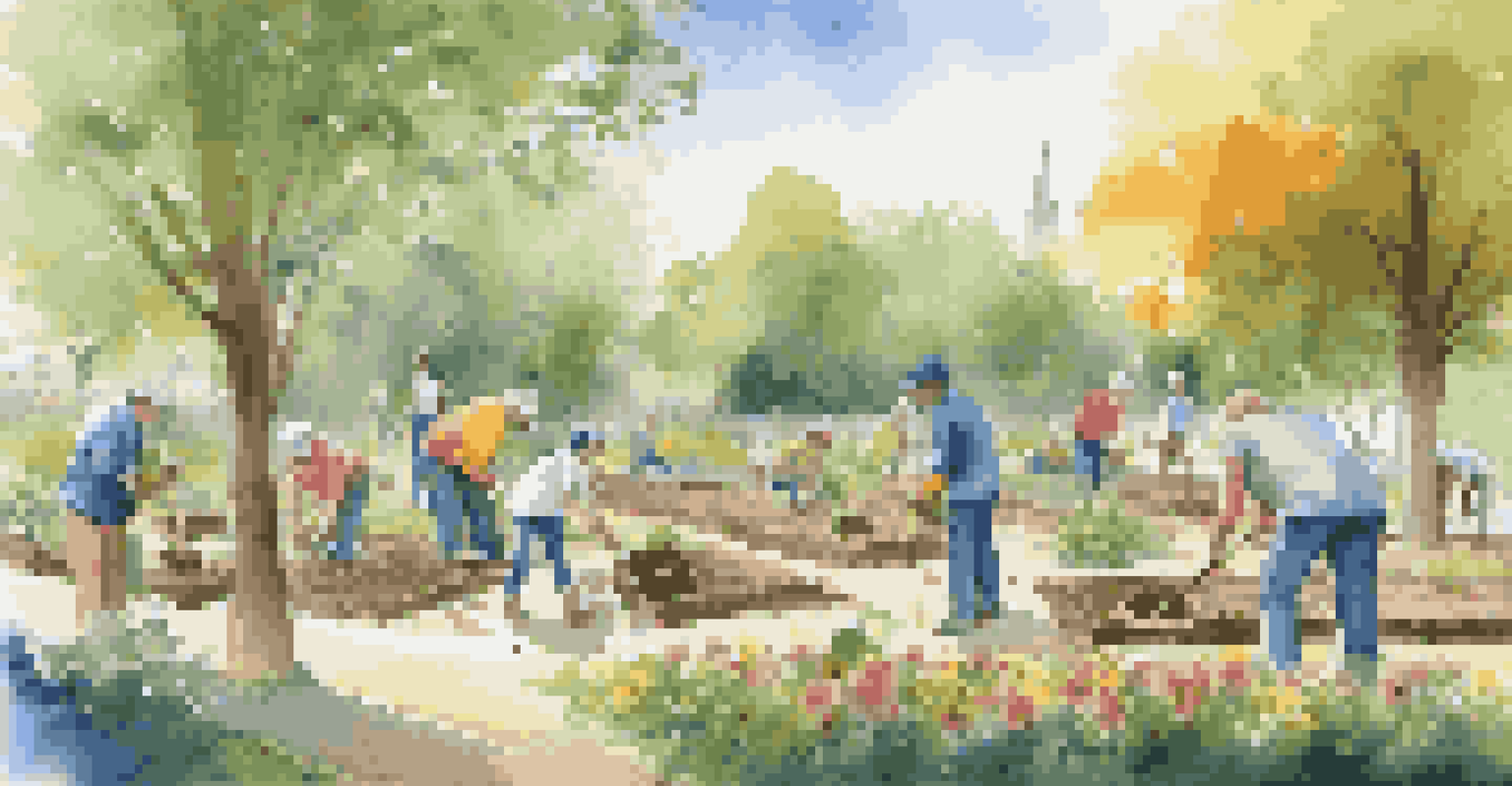Volunteering Abroad: Supporting Local Communities Respectfully

Understanding the Importance of Cultural Sensitivity
When volunteering abroad, it's crucial to approach your experience with cultural sensitivity. This means being aware of and respecting the traditions and customs of the local community. For instance, in some cultures, certain gestures or clothing may have different meanings than you expect.
The best way to find yourself is to lose yourself in the service of others.
By taking the time to learn about the local culture, you'll not only gain a deeper understanding of the people you’re working with, but you'll also foster positive relationships. Imagine walking into a community center and being greeted with smiles because you took the effort to understand their ways; it makes all the difference.
Cultural sensitivity helps to break down barriers and allows for genuine connections. It’s not just about what you can give as a volunteer, but also about what you can learn from the local community.
Choosing Responsible Volunteer Programs
Not all volunteer programs are created equal. It's essential to research and choose programs that prioritize the community's needs over the volunteers'. Look for organizations that are transparent about their goals and have established relationships with local leaders.

For example, programs that involve local staff and offer ongoing training to community members ensure that your contributions are sustainable. This helps the local community thrive in the long run, rather than creating dependency on foreign aid.
Embrace Cultural Sensitivity
Understanding and respecting local customs fosters positive relationships and enhances your volunteering experience.
Be wary of programs that seem too good to be true or that don't provide clear information about their impact. Choosing the right program can make your volunteer experience not only rewarding but also respectful to the community.
Engaging in Meaningful Community Projects
When volunteering, aim to engage in projects that address genuine community needs. This could include teaching English, participating in conservation efforts, or helping with public health initiatives. The key is to ensure that your efforts align with what the community truly wants.
Volunteers do not necessarily have the time; they just have the heart.
For instance, if a local school needs educational resources but you show up ready to build a playground, you may miss the mark. Listening to community voices and adapting your contributions accordingly can lead to more impactful outcomes.
Meaningful engagement means considering the long-term effects of your work. Look for projects that empower locals and build skills rather than replacing them.
Building Relationships with Local People
Volunteering abroad is as much about building relationships as it is about the work you do. Take the time to interact with local community members, understand their stories, and share your own. These connections can enrich your experience and provide valuable insights into the local culture.
For example, sharing a meal with local families can offer a unique perspective on their daily lives and traditions. These moments create bonds that transcend language and cultural differences.
Choose Responsible Programs
Selecting volunteer programs that prioritize community needs ensures sustainable contributions and genuine impact.
Remember, the relationships you form can have lasting impacts. They can lead to friendships, collaborations, and even future volunteer opportunities in the community.
Reflecting on Your Impact and Experience
After your volunteering experience, take time to reflect on your impact and the lessons learned. Ask yourself how your work has contributed to the community and what you could have done differently. This kind of self-reflection is crucial for personal growth.
Consider journaling about your experiences or discussing them with fellow volunteers. This practice can help you process your thoughts and feelings, allowing for deeper insights into your role as a volunteer.
Reflecting not only enhances your understanding but also prepares you for future volunteer opportunities. It encourages a mindset of continuous improvement and respect for the communities you serve.
Sharing Your Experience to Inspire Others
Once you return home, don’t keep your experiences to yourself. Share your stories through blogs, social media, or community presentations. This can inspire others to engage in volunteering abroad while emphasizing the importance of cultural respect.
Using storytelling, you can highlight the positive changes that both you and the community experienced. For instance, sharing a story about a local child you tutored can illustrate the transformative power of volunteering.
Build Lasting Community Connections
Engaging with local people enriches your experience and can lead to meaningful friendships and future opportunities.
By spreading the word, you not only promote responsible volunteering but also encourage others to approach such journeys with an open heart and mind.
Continuing Support for Local Communities
Volunteering abroad shouldn’t just end when your trip does. Consider ongoing ways to support the local community, whether through donations, advocacy, or sharing resources. Staying connected can help sustain the positive impact of your work.
For example, you might choose to support a local organization financially or volunteer your skills remotely, helping them with marketing or outreach. This kind of continued support shows your commitment to the community's growth.

Ultimately, keeping the connection alive helps ensure that the community continues to thrive long after your departure. It’s a way to turn a short-term experience into long-term benefits.